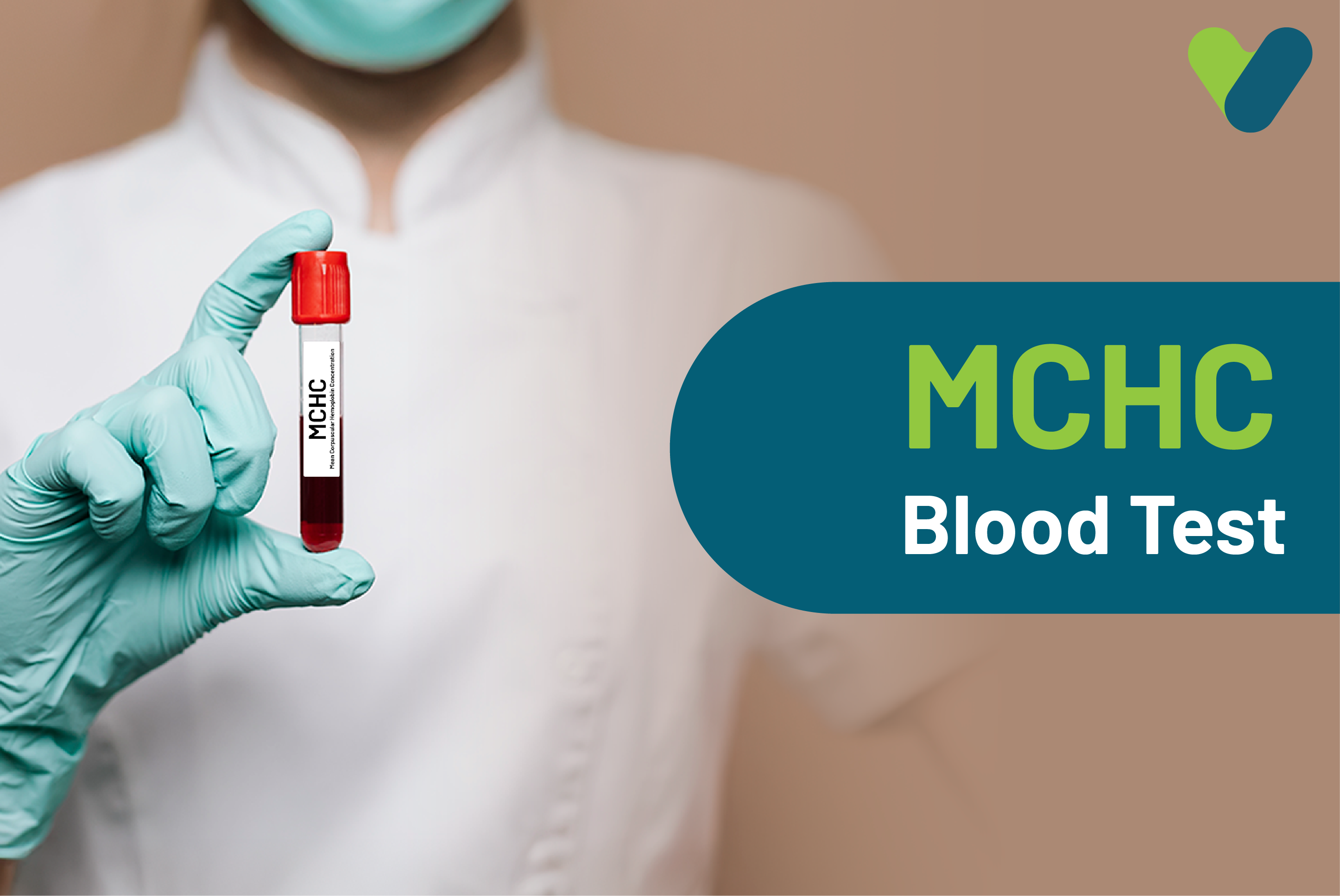Blood tests are crucial for assessing health, identifying diseases, and tracking the effectiveness of treatment. The MCHC blood test is one such test that frequently shows up on complete blood count (CBC) panels. Despite its significance, many people are unaware of its consequences and implications, such as what the MCHC blood test measures, what low or high MCHC levels signify, and how these results are interpreted, all covered in this article.
What Is the MCHC Blood Test?
MCHC blood test stands for Mean Corpuscular Hemoglobin Concentration. It measures the amount of hemoglobin a red blood cell has relative to its volume. Red blood cells contain a protein called hemoglobin, which transports oxygen throughout the body. An MCHC blood test to measure hemoglobin can help identify medical issues; too low or high MCHC levels can indicate several illnesses.The Mean Corpuscular Hemoglobin Concentration blood test emphasizes that it measures hemoglobin density rather than amount. It is not the same as other tests that assess the size of red blood cells, such as MCV (Mean Corpuscular Volume). It's critical to comprehend the MCHC blood test, particularly when examining the causes of anemia or other blood problems.
Normal Range for MCHC Blood Test
The typical range for an MCHC blood test is 32–36 grams per deciliter (g/dL). However, there can be minor differences depending on the lab and measuring methods employed.- The amount Below Normal is below 32 g/dL
- 32–36 g/dL is within the normal range.
- Over 36 g/dL is considered above normal.
When the MCHC Blood Test Is Low
Hypochromia, a disorder in which red blood cells have less hemoglobin than usual, is usually indicated by a low MCHC blood test. This may impact their capacity to carry oxygen effectively.Common Causes of Low MCHC :
Iron deficiency anemia may be indicated by MCHC values below the normal range. Iron deficiency anemia occurs when your body doesn't have enough iron, which is necessary for the production of red blood cells. Your MCHC levels and the synthesis of healthy red blood cells can both be impacted by iron deficiency.The most prevalent kind of anemia is iron deficiency anemia. It may arise in the following situations:
- Chronic inflammation: Your body's ability to use iron may be hampered by conditions that produce persistent inflammation.
- Kidney Disease: With this, your kidneys don’t make enough erythropoietin, a hormone needed to make red blood cells.
- Trouble absorbing iron: Iron absorption issues can result from endurance sports, intestinal disorders, and specific genetic diseases.
- Thalassemia: Thalassemia may be the cause of low MCHC. A genetic blood condition called thalassemia occurs when the body produces insufficient hemoglobin.
- Pancytopenia: It may also be the result of pancytopenia, a condition in which your body produces insufficient amounts of platelets (thrombocytopenia), white blood cells (leukopenia), and red blood cells (anemia).
When the MCHC Blood Test Is High
High MCHC blood test results can also happen, though they are less often. Increased MCHC levels indicate hyperchromia, a condition in which hemoglobin saturation of red blood cells is excessive.Common Causes of High MCHC
Depending on the kind of anemia, a high MCHC can also result from it. An MCHC reading over the usual range can result from hemolytic anemia. Hemolytic anemia results when red blood cells degrade more quickly than they can be replenished. There are several causes for this kind of anemia, including:- Autoimmune diseases
- Problems with blood transfusions
- Infections
- Sickle cell illness
Significance of the MCHC Blood Test
When it comes to identifying and distinguishing between different forms of anemia, the MCHC blood test is essential. MCHC provides context by illustrating the distribution of hemoglobin within each red blood cell, even if hemoglobin concentration is also measured directly.Abnormal MCHC levels can directly affect energy levels, organ function, and general health because hemoglobin is in charge of oxygen transfer. For a complete picture of hematologic health, physicians, therefore, combine this statistic with other CBC values.
MCHC Blood Test Interpretation in a CBC Panel
The MCHC blood test is typically a component of a complete blood count. When examining CBC findings, physicians consider several linked factors:- Hemoglobin (Hgb): The blood's total hemoglobin content.
- The percentage of red blood cells in the blood is known as the hematocrit (Hct).
- MCV: Red blood cell average size.
- MCH: Hemoglobin content per red blood cell on average.
Handling Unusual MCHC Blood Test Findings
Treatment usually entails addressing the underlying cause when the MCHC blood test is low, such as:- Iron deficiency anemia can be treated with iron supplements or dietary modifications.
- Controlling long-term illnesses such as inflammatory diseases or kidney damage.
- In cases of inherited blood problems, genetic counseling is recommended.
Significance of Consistent MCHC Blood Test Monitoring
The results of your MCHC blood tests should be regularly monitored as part of preventive treatment. Many people may not exhibit any outward symptoms in the early stages of anemia or similar disorders. Physicians can identify changes in the health of red blood cells before more significant issues occur by monitoring Mean Corpuscular Hemoglobin Concentration.Periodically reviewing MCHC blood test results guarantees prompt management for patients with chronic conditions such as kidney disease, inflammatory disorders, or nutritional deficits. By spotting patterns like a steadily declining MCHC blood test result, physicians can modify treatment regimens before symptoms worsen.
Furthermore, knowing the complete form of the MCHC blood test and its significance is beneficial for people with a family history of genetic blood disorders. MCHC gives a more complex picture than merely the size or number of red blood cells since it represents hemoglobin density. It acts as a warning sign for imbalances that need to be addressed.
Knowing your MCHC blood test and its normal range enables you to take proactive measures toward optimal health, whether managing an existing ailment or getting a routine checkup.
References:
Health.com : https://www.health.com/mchc-blood-test-7092747
Testing - https://www.testing.com/tests/mchc-test/


